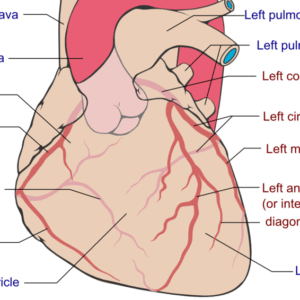Cardiology > Cardiotoxic Drugs
Cardiotoxic Drugs
Background
Cardiotoxic drugs are pharmacologic agents that exert adverse effects on the structure or function of the heart, potentially leading to arrhythmias, myocardial dysfunction, ischemia, pericardial disease, or heart failure. Their cardiotoxicity may be dose-related, idiosyncratic, or cumulative and can be reversible or irreversible.
Understanding cardiotoxic drugs is crucial in clinical practice for risk stratification, prevention, monitoring, and early intervention in patients undergoing therapy with agents known to harm cardiovascular health.
Classification/Types
1. Chemotherapeutic Agents
Anthracyclines: Doxorubicin, daunorubicin (dose-dependent cardiomyopathy, heart failure).
Trastuzumab (HER2 inhibitors): Reversible LV dysfunction.
Cyclophosphamide, ifosfamide: Hemorrhagic myocarditis, cardiomyopathy.
Tyrosine kinase inhibitors (sunitinib, sorafenib, imatinib): Hypertension, LV dysfunction.
Immune checkpoint inhibitors: Myocarditis.
2. Antiarrhythmic Drugs
Class I agents (flecainide, procainamide, quinidine): Proarrhythmia, QT prolongation.
Class III agents (sotalol, dofetilide, amiodarone): QT prolongation, torsades de pointes, organ toxicity with amiodarone.
3. Antibiotics and Antifungals
Macrolides (erythromycin, azithromycin, clarithromycin): QT prolongation.
Fluoroquinolones (levofloxacin, moxifloxacin): QT prolongation.
Azole antifungals (ketoconazole, itraconazole): QT prolongation, drug interactions.
4. Antipsychotics and Antidepressants
Typical antipsychotics (haloperidol, chlorpromazine): QT prolongation, sudden cardiac death.
Atypical antipsychotics (ziprasidone, quetiapine): QT prolongation, myocarditis (clozapine).
Tricyclic antidepressants (amitriptyline, imipramine): Arrhythmias, hypotension, conduction block.
SSRIs (citalopram, escitalopram): QT prolongation at higher doses.
5. Stimulants and Illicit Drugs
Cocaine, amphetamines: Coronary vasospasm, MI, arrhythmias.
Alcohol: Dilated cardiomyopathy, arrhythmias.
Cannabis: Rare arrhythmias, myocarditis (emerging evidence).
6. Other Cardiovascular-Related Drugs
NSAIDs, COX-2 inhibitors: Hypertension, heart failure exacerbation, MI risk.
Glucocorticoids: Fluid retention, hypertension.
Methadone: QT prolongation.
Chloroquine, hydroxychloroquine: Conduction abnormalities, cardiomyopathy.
Mechanisms of Toxicity
Direct myocardial toxicity (anthracyclines: free radical injury, mitochondrial damage).
Interference with signaling pathways (trastuzumab: HER2 blockade impairing myocardial repair).
Electrophysiologic disruption (QT prolongation from K⁺ channel blockade, torsades de pointes risk).
Vasospasm/ischemia (cocaine, 5-FU).
Autoimmune mechanisms (immune checkpoint inhibitors → myocarditis).
Indications for Use
Despite risks, many cardiotoxic drugs are indispensable in therapy:
Chemotherapy in cancer treatment.
Antiarrhythmics in refractory arrhythmias.
Antipsychotics/antidepressants in psychiatric disorders.
Antibiotics in life-threatening infections.
Thus, benefit–risk assessment and monitoring are critical.
Contraindications
Pre-existing severe LV dysfunction (caution with anthracyclines, trastuzumab).
History of torsades de pointes or long QT syndrome (avoid QT-prolonging drugs).
Concomitant use of multiple QT-prolonging agents.
Severe heart failure (NSAIDs, COX-2 inhibitors, TZDs for diabetes).
Physical Exam Findings Correlated
Vital Signs
Tachycardia, bradycardia, hypotension, hypertension (drug-induced).
General Appearance
Fatigue, dyspnea, edema suggesting cardiomyopathy.
Cardiovascular System
Irregular rhythm (arrhythmias).
Murmurs or gallops (cardiomyopathy, myocarditis).
Signs of heart failure (S3, rales, JVD, edema).
Neurological System
Syncope or seizure-like activity during torsades de pointes.
Advantages (Clinical Relevance)
Many cardiotoxic drugs are essential in treating malignancies, psychiatric illness, or infections.
Some cardiotoxic effects are dose-dependent and reversible with early detection.
Monitoring strategies (e.g., echocardiography, ECG surveillance, biomarkers like troponin/BNP) allow safer use.
Limitations
Cardiotoxicity may be irreversible (e.g., anthracycline-induced cardiomyopathy).
Risk increases with polypharmacy.
Predictability varies; some patients develop toxicity at low doses.
Requires long-term monitoring and specialized cardio-oncology care in cancer patients.
Complications
Arrhythmias: QT prolongation, torsades de pointes, ventricular tachycardia.
Cardiomyopathy/Heart Failure: Anthracyclines, alcohol, trastuzumab.
Ischemia/MI: Cocaine, 5-FU, NSAIDs.
Myocarditis/Pericarditis: Clozapine, checkpoint inhibitors.
Sudden cardiac death: Antipsychotics, methadone.
Follow-Up and Clinical Decision-Making
Baseline testing: ECG, echocardiogram, cardiac biomarkers before initiating high-risk drugs.
Surveillance: Periodic LVEF assessment (especially in chemotherapy).
Risk reduction: Use lowest effective dose, avoid drug combinations with additive cardiotoxicity.
Intervention: Early discontinuation, switch to non-cardiotoxic alternatives if possible.
Adjunctive therapy: Cardioprotective agents (dexrazoxane for anthracycline cardiotoxicity; beta-blockers/ACE inhibitors in prevention).
Stay on top of medicine. Get connected. Crush the boards.
HMD is a beacon of medical education, committed to forging a global network of physicians, medical students, and allied healthcare professionals.

